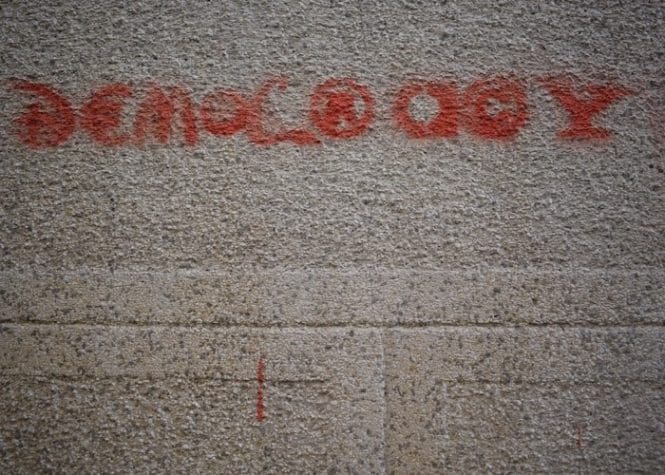One of the significant impediments to change in the Episcopal church is when members, wittingly or unwittingly, share fabrications about the church. And one of the most blatant fabrications is the notion that the Episcopal church is a democracy. It is not.
For starters, once elected, bishops have almost no accountability. Yes, if they do something egregious, the presiding bishop’s office may — emphasis may — get involved. But many feel free to ignore church canons routinely, shrug off child sexual abuse, and bully church members. One need only look at George Sumner‘s bullying of a LatinX parish in his diocese or Glenda Curry‘s ignoring allegations of child molestation by clergy under her supervision to see the truth of this assertion.
In these situations, in a real democracy, citizens could vote feckless persons like Curry and Sumner out of office. But as things stand, we are stuck with them until they retire (hopefully soon), or folks deploy the nuclear option of withholding funds until they go.
Similarly, almost every issue debated or voted on at General Convention comes from the various standing committees and task forces. And who controls the composition of these groups? Just two people — the presiding bishop and the House of Deputies president. That’s right — just two people control the checkpoints that allow legislation to reach the floor.
Indeed, even the vote for a new presiding bishop is primarily controlled by the Episcopal nomenklatura, the Joint Nominating Committee for the Election of the Presiding Bishop. This group vets nominees and decides who gets on the slate. And while nominations can come from the floor of the General Convention, such a candidacy is unlikely to be successful.
What does this mean for the church?
In practical terms, decision-making is highly centralized. In turn, this results in single points of failure, like the fact that Bishop Heather Cook’s nominating committee members knew that one candidate had a DUI but had no specifics. Thus, a vital factor in the selection process wasn’t even under consideration.
At the same time, the huge numbers of delegates to the General Convention and the myriad layers of bureaucracy create a situation in which unpleasant decisions often get shuffled off into legislative backwaters, where no one takes responsibility. So the church ends up with the weird juxtaposition of centralized authority and decentralized accountability. Or, as we often point out, hierarchical when it comes to money and property, congregational in polity when it comes to clergy discipline.
Regarding the spiritual life of the church, members cannot be in right relationship with one another when they receive false information. In other words, the spectacularly non-inclusive nature of the church cannot be fixed when Episcopalians don’t understand that their denomination is, in many ways, anything but inclusive. Nor do folks do anyone any favors when they promulgate fabrications of this sort.
In short, there is a dire need for reform within the Episcopal church. But very few members understand what this reform must entail if the church is to survive or live into the promises of the Baptismal Covenant.


Leave a Reply